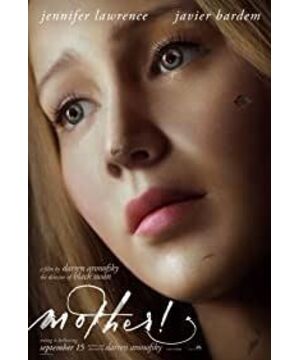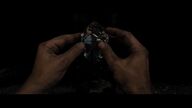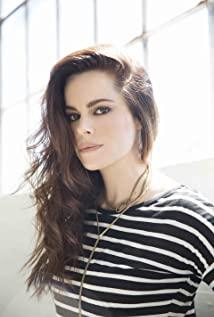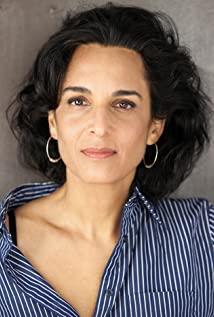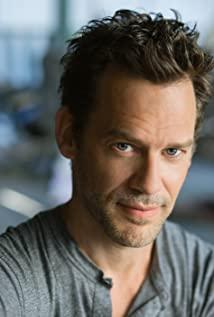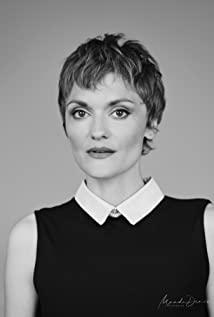Darren is undoubtedly a talented director with a delicate mind. Different from the ingenuity and stereotypes of commercial film directors, his strong personal style and highly individual artistic expression make the audience's evaluation of his works polarized. Sure enough, the new film Mother! The same is true, of course, also did not let me down.
Falun's pursuit of pure art can be seen from "Black Swan", trying to explore the subtle connection between complex human nature and artistic development. Black Swan tells the story of Nina, a talented dancer from the New York Ballet, who discovers the dark side of her heart on the road of pursuing perfect art, and gradually goes astray in paranoia, and finally completes the tribute to the ultimate art in a self-destructive way.
As the screenwriter and director of the film, Mother!'s core also tells the story of an artist who struggles to protect the pure and clean soil of his heart and the noisy and complicated external society. The director refracts the self-mirror on the two main roles of poet poet (male lead) and inspiration (female lead).
The isolated villa located in the green reeds is the inner world of the poet (inspiration says that this is where the poet lived when he was a child). Can't hold a word. Inspiration likes this peaceful way of life, but the writer has to communicate with the turbulent world (the sudden visit of the family and the death of the eldest son) in order to write the perfect works. The inner world is that the house is no longer neat and clean, and it begins to fester and bleed. Inspiration wants to whitewash the peace, cover up blood-soaked floors, find a dirty basement but pretend not to know, drink painkillers to suppress their pain, etc.
The perfect work is finally born, it is a symbol of beauty, and I cherish it very much as an inspiration for my mother, and I don't want him to be disturbed by the outside world. This is the artistic aspect of the director, and the poet, who is the representative of the secular world, can't wait to show it to everyone. As a result, the child (the work) is directly shared by everyone. This bloody scene is also the embodiment of the brutal destruction of art works by ignorant people, and was shown on the big screen by directors who love horror and bloody scenes.
Here I would like to talk about the lens language expression in Darren's film. He can always move the audience's heart with his precise camera language. Even if there are no lines and no background music, the director cuts through the special angle of the seemingly ordinary picture, which also mobilizes the audience's nervousness and brings a sense of urgency to the film. This deliberately suppressed intensity hits my excitement. That's one of the reasons why I prefer this director. A prominent performance is that in Black Swan, the camera is shot from behind Nina's shoulders, allowing the audience to see what she sees, hear what she hears, feel what she feels, and generate emotional resonance. Also at Mother! The medium shot has always followed inspiration, the embodiment of pure artistic beauty like Nina.
The most impressive scene in the film should be the inspiration being pushed to the ground by the fanatical poet followers, torn to pieces, punched and kicked, and finally lying in the poet's arms covered in scars. The director used many shots to depict the destruction of the house in the inner world of the people and even the writer's fanatical fans. The unscrupulous behaviors such as dismantling the sink, arbitrarily painting the walls, knocking down the walls and other unscrupulous intrusions into other people's private areas are outrageous. But the poet has always acquiesced to these acts, thinking of forgiving them after the work (the child) was mutilated. This kind of fearless and strong dedication really reminds me of the great writers who were persecuted in these special times. "Despite the ignorance of the people, they arbitrarily criticize me in the name of their favorite, and even misinterpret and degrade my works. But I still don't want to bother with them, I still want to wake them up."
The inspiration, as the incarnation of the ultimate artistic beauty, finally self-immolated in the poet's inner world, leaving only a heart that turned into a crystal (the inspiration said that the poet's home was on fire when he was young, and only this crystal was left to rekindle his hope in life), allowing the writer to create in the future. In meditation. The irony is that the film turns back to the beginning at the end of the film. The girl who was in the fire, holding a crystal in her hand, was completely reduced to ashes after she dedicated her entire work. The scorched inspiration was brought back to the beginning, the poet said sorry I had to do it (in order to continue writing), and the new young girl appeared on the other side of the bed.
In terms of lines, some of them can still reflect the theme of the movie. Inspiration said you never loved me, you just loved how much Iove you. Inspiration begged the writer to let his followers leave to protect the children, but the poet shouted, I don't want them to leave! The poet as the creator of art also longs for praise and adoration, he is not pure. The result is The world ends when you(inspiration) say goodbye. The ending song is The End of the World by Skeeter Davis. You can read the lyrics and feel the love and killing between the writer and the inspiration, and then add the director. Compromise and persistence in the development of Hollywood, and the balance he is trying to find between art and interests.
Some film critics pointed out that the film also implied religious persecution of human beings, such as the people who were shot with hoods in the film and the rebels who were detained by the police. Everything flocks to the house that represents the poet's inner world, which is actually the director's inner world. Even the setting of the entire film is limited to this house, just like a film itself is the director's personal consciousness and Concentrated expression of thought, Mother! Isn't this movie Darren's self-imagination?
Mr. Lu Xun said that tragedy is to destroy beautiful things for you to see. The last scene of Black Swan, Natalie Portaman, jumped up from the stage like an elegant and noble white swan and murmured I am Perfect, which became the most beautiful ending and climax of the whole film. And the beauty of inspiration, played by Jennifer Lawrence, may not be so easily perceived directly. But I think the casting is a success, unlike the delicate and decent ballet dancer, the inspiration is not __bk:6faopFendai, raw and sincere, so that at first glance you even think she is so ordinary. But gradually you will find that her beauty is reflected in her purity as the embodiment of art: she loves unreservedly, sheds tears for the poet's perfect work, stubbornly guards the pure land of the poet's inner world house, The child who protected the two turned into a strong mother. Jennifer Lawrence interprets this role very well. The tenacious and forbearing girl in Winter's Bone in the original "Bone in Winter" seems to be back.
At the end of the film, the beautiful inspiration turns into ugly scorched earth. Darren's films always carry a similar strong sense of tragedy, but this talented director's keen perception of human nature and art makes me look forward to his next one. Inspiration Muse. The young girl seems to be Darren declaring war on mainstream critics such as the Oscar (Darren missed the Oscar for best director in 2012, won by Tom Cooper, the director of "The King's Speech"): "My inspiration never runs out!"
View more about Mother! reviews


